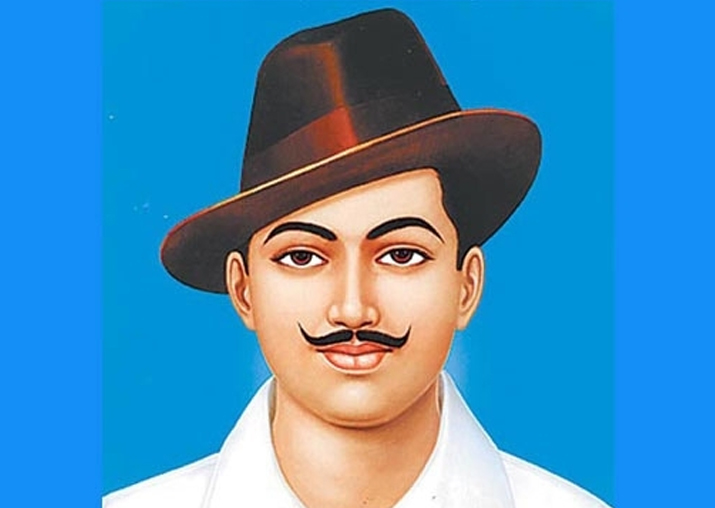Important Facts For Prelims
Bhagat Singh’s Birth Anniversary
- 30 Sep 2024
- 5 min read
Why in News?
28th September 2024 marks the birth anniversary of Bhagat Singh, a legendary revolutionary whose spirit inspires generations in India. Celebrated as a national hero, he dedicated his life to fighting British colonial rule, leaving a legacy of courage and sacrifice.
Who was Bhagat Singh?
- Birth: Bhagat Singh was born on 28th September, 1907, in Banga, Punjab, British India (now in Pakistan). He Came from a Sikh family actively involved in anti-colonial activities; his father, Kishan Singh, and uncle, Ajit Singh, were prominent freedom fighters.
- Early Life: Witnessed the Jallianwala Bagh massacre at the age of 12, which instilled a deep sense of patriotism and a vow to fight for India’s freedom.
- Education: Joined the National College, Lahore, founded by Lala Lajpat Rai, which emphasised Swadeshi Movement and provided a platform for revolutionary ideas.
- Revolutionary Organisations: Bhagat Singh became a member of the Hindustan Republican Association (HRA) in 1924, later renaming it the Hindustan Socialist Republican Association (HSRA) in 1928.
- Naujawan Bharat Sabha was founded by Bhagat Singh in 1926, aimed at mobilising youth for the freedom struggle.
- Major Actions: Involved in the assassination of police officer J.P. Saunders in 1928 (Lahore Conspiracy Case) as retaliation for Lala Lajpat Rai’s death due to police brutality.
- Threw a bomb in the Central Legislative Assembly on 18th April 1929, with B.K. Dutt to protest against repressive British laws.
- Arrest and Trial: Arrested in 1929 for the bomb incident and later charged with murder in the Lahore Conspiracy Case. He was tried, convicted, and sentenced to death.
- Executed on 23rd March 1931, along with fellow revolutionaries Sukhdev and Rajguru, in Lahore. Bhagat Singh is affectionately known as Shahid-e-Azam, the greatest of martyrs.
- Literary Contributions: Authored significant works, including Why I Am an Atheist, The Jail Notebook and Other Writings, and several political manifestos advocating for socialism and revolution.
- In his early work, Vishwa Prem (Universal Love), Singh proclaimed the importance of equality. He envisioned a world free of hunger and war, where humanity transcends boundaries of race and nationality.
- Ideologies: Advocated Marxist and socialist ideologies, emphasising rationalism, equality, and justice. Critiqued organised religion, viewing them as forms of mental and physical slavery.
- Legacy: Celebrated as a national hero and martyr; his birth anniversary and the date of his execution are observed annually to honour his contributions to India's freedom struggle.
- Every year, 23rd March is observed as Martyrs’ Day as a tribute to freedom fighters Bhagat Singh, Sukhdev, and Rajguru.
What is the Relevance of Bhagat Singh's Ideologies in Today's World?
- Universal Brotherhood: Singh's idea of Vishwa Prem is promoting global peace, equality, and cooperation in a time of growing nationalism, racism, and economic disparities.
- Communal Harmony: His critique of communalism in his article Communal Riots and Their Solution holds relevance in contemporary India, where religious and communal tensions continue to undermine social cohesion.
- Student Involvement in Politics: Singh's call for students to engage in political discourse, as outlined in his article Students and Politics, resonates with current debates about the role of youth in addressing pressing social and political issues.
- Upliftment of Marginalized Communities: Singh in The Problem of Untouchability, article advocated for the empowerment of oppressed groups and dismantling caste hierarchies aligns with ongoing struggles for social justice and equality in India today.
- Revolutionary Spirit: Singh’s view on revolution, outlined in his article What is Revolution?, calls for the continuous challenging of oppressive systems and reactionary forces.
- This idea remains applicable in modern movements for political reform and social change globally.







